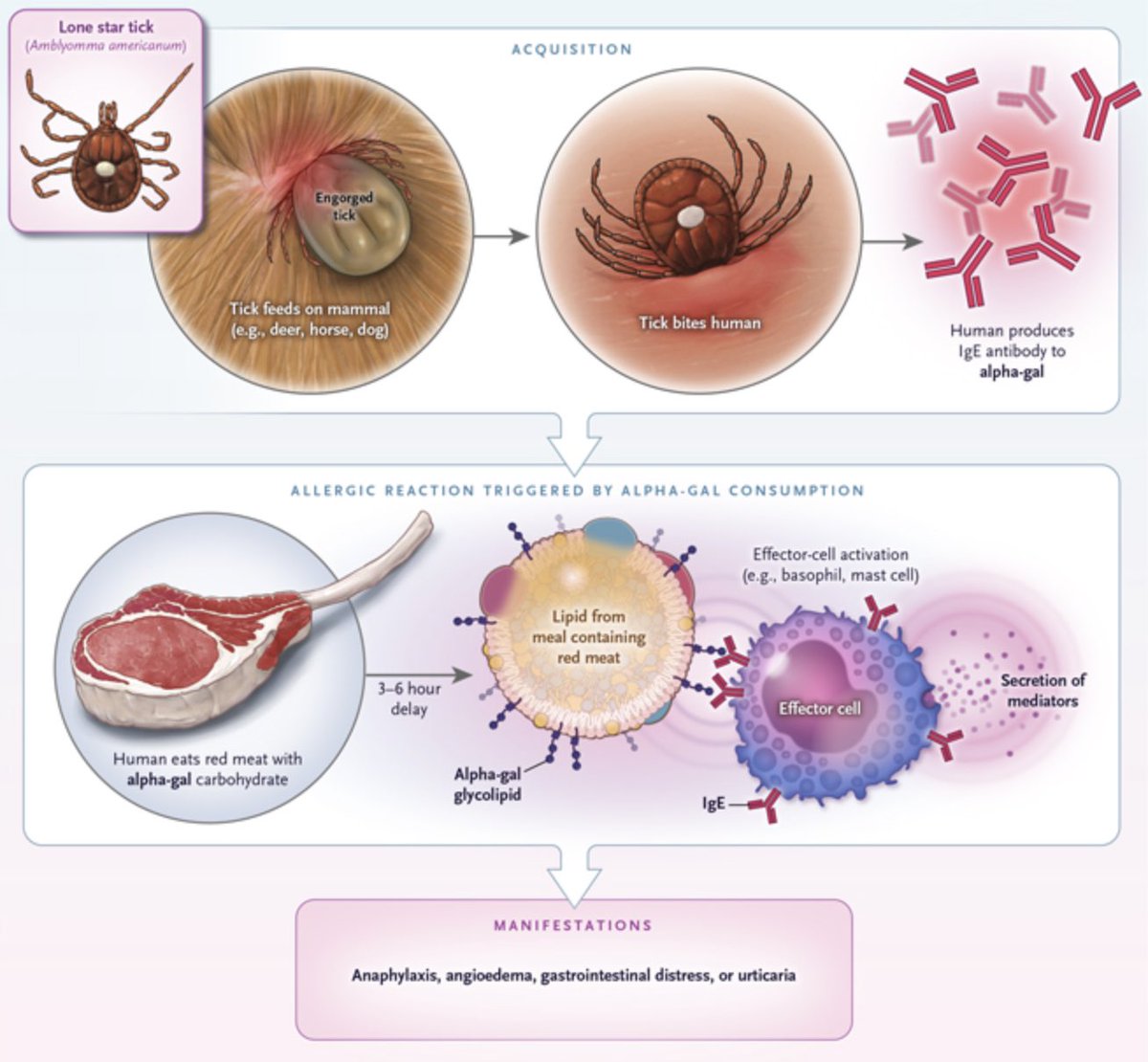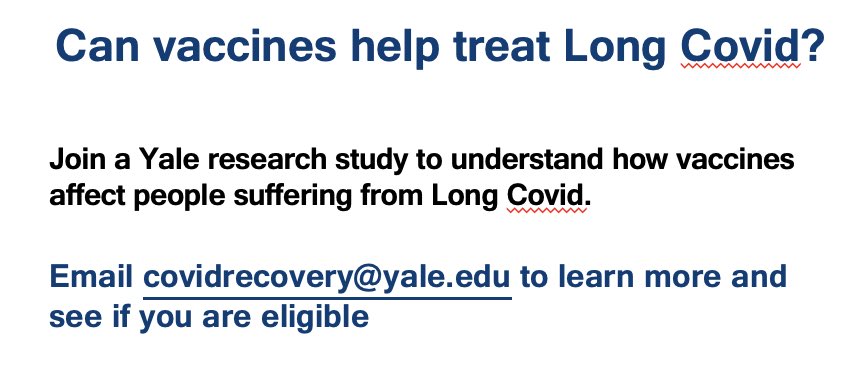
This thread is about alpha-gal syndrome (AGS) - meat allergy induced by tick bites. I’ve been living with AGS for >2 yrs. I hope this info will help those who suffer from this illness without knowing the cause. Please help bring awareness to #AGS (1/n)
resident360.nejm.org/clinical-pearl…
resident360.nejm.org/clinical-pearl…

I live in New England USA, surrounded by beautiful nature. This nature is rich in wildlife - animals and arthropods including many species of ticks. (2/n) 

Ticks are infamous for the many infectious agents they carry that cause diseases such as
Anaplasmosis
Babesiosis
Borrelia miyamotoi disease
Ehrlichiosis
Lyme disease
Powassan virus disease
Rocky Mountain spotted fever (RMSF)
Tularemia (3/n)
portal.ct.gov/DPH/Epidemiolo…
Anaplasmosis
Babesiosis
Borrelia miyamotoi disease
Ehrlichiosis
Lyme disease
Powassan virus disease
Rocky Mountain spotted fever (RMSF)
Tularemia (3/n)
portal.ct.gov/DPH/Epidemiolo…
But this thread is about allergy caused by tick bites known as alpha-gal syndrome. Alpha-gal (galactose-α-1,3-galactose) is a sugar molecule found in all mammals except in Old World monkeys, apes & humans. This molecule is foreign to us humans. (4/n)
pnas.org/content/88/16/…
pnas.org/content/88/16/…
Certain types of ticks (such as lone star ticks) carry alpha-gal-containing antigens in their saliva. Once injected into the skin, these antigens are thought to induce robust IgE responses against the alpha-gal molecule. (5/n)
frontiersin.org/articles/10.33…
frontiersin.org/articles/10.33…
People bitten by these ticks can develop IgE against alpha-gal, which causes allergy to meat that contains it (beef, pork, lamb…etc). Unlike other food allergies which are immediate, alpha-gal symptoms appear 3-6 hours after meat consumption. (6/n)
cdc.gov/ticks/alpha-ga…
cdc.gov/ticks/alpha-ga…
The symptoms and severity vary between those with AGS. AGS reactions can include:
Rash
Hives
Nausea or vomiting
Difficulty breathing
Drop in blood pressure
Dizziness or faintness
Severe stomach pain
Anaphylaxis (requires EpiPen)
(7/n)
Rash
Hives
Nausea or vomiting
Difficulty breathing
Drop in blood pressure
Dizziness or faintness
Severe stomach pain
Anaphylaxis (requires EpiPen)
(7/n)
Alpha gal is also present in other mammalian-based products including medications, cosmetics, vaccines, gelatin, and milk products 🍦. Even biologics like cetuximab (a chimeric antibody containing alpha-gal within mouse portion) can induce reaction. (8/n)
sciencedirect.com/science/articl…
sciencedirect.com/science/articl…
In fact, it was the allergic reaction to cetuximab in patients that led Dr. Thomas Platts-Mills of @UVA to the discovery of IgE against alpha-gal and eventually linking it back to Lone Star ticks. (9/n)
news.virginia.edu/content/what-k…
news.virginia.edu/content/what-k…
Not all antibodies to alpha-gal are bad. In fact IgM against alpha gal elicited by gut microbiota is protective against Malaria. Plasmodium sporozoite expresses alpha gal and is bound and killed by such antibodies.
Work by @MiguelCheSoares (10/n)
cell.com/cell/fulltext/…
Work by @MiguelCheSoares (10/n)
cell.com/cell/fulltext/…
While it is a growing epidemic, there is still lack of awareness about the alpha-gal syndrome leading to delay in diagnosis and misdiagnosis. This is a great website to explore more. (11/n)
alphagalinformation.org
alphagalinformation.org

Finally, AGS has taken a toll on me, though I try to avoid all meats and meat-based products. Eating out is a huge risk. It only takes a trace of contaminant to make me very sick. Traveling has become a huge challenge for me 😢 #AvoidTicks (end)
• • •
Missing some Tweet in this thread? You can try to
force a refresh











